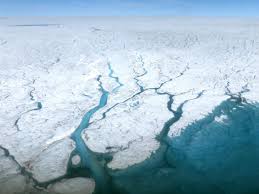Vanishing Arctic sea ice. Dogged weather systems over Greenland. Far-flung surface ice melting on the massive island. These dramatic trends and global sea-level rise are…

Current sea level rise

Dr. James Hansen, the former NASA scientist who is widely credited with being one of the first to raise concerns about human-caused global warming, is…

The rewards of being right about climate change are bittersweet. James Hansen should know this better than most — he warned of this whole thing…

Sea-level rise may be the most predictable outcome of climate change. Expanding warmer waters and melting land ice both contribute to flooding – and scientists…

U.S. coastal communities, home to more than 13 million people, are at risk of being completely flooded by rising sea levels within the century under…

More people live close to sea coast than earlier estimated, assess researchers in a new study. These people are the most vulnerable to the rise…

A dusty film of pollution is muting the reflective whiteness of Greenland’s pristine icecap and making it vulnerable to accelerated melting rates. Greenland is getting…

Damages from extreme events like floods are even more relevant than the mean sea level itself when it comes to the costs of climate impacts…

PULLMAN, Wash.--Washington State University researchers have concluded that feeding a growing global population with sustainability goals in mind is possible. Their review of hundreds of…

A new global analysis of seafood found that fish populations throughout the world's oceans are contaminated with industrial and agricultural pollutants, collectively known as persistent…

Clouds play a bigger role in the melting of the Greenland ice sheet than was previously assumed. Compared to clear skies, clouds enhance the meltwater…

The Paris Climate Change Conference failed Humanity and has locked in a catastrophic temperature rise of about plus 2.7 degrees C. All ordinary folk can…
